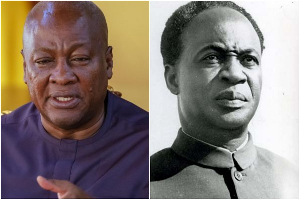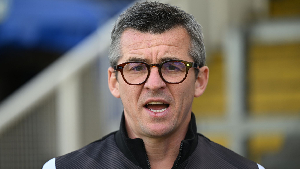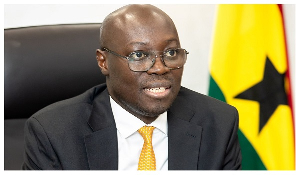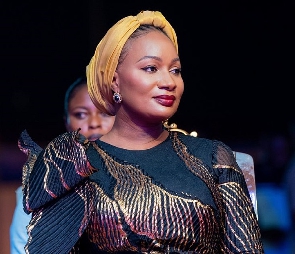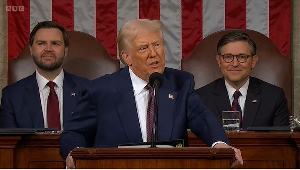Professor Atta-Mills ended a long self-imposed silence to kick off his campaign during a ?public forum? on Tuesday, 2 March 2004 in Accra. On balance, the NDC flag bearer made a good presentation. He focused on a retrospective review of the political economy of Ghana. Also, he sketched his vision for the country should he become the next president come January 2005.
The speech was long on rhetoric but short on specifics. It failed to deal with the twin challenges which has bedevilled our country since its inception, namely the inability of the economy to generate sufficient wealth to spur social and economic development and the over dependence on external benefactors to meet the country?s expenditure requirements.
For example, Ghana presently depends on development partners for a whopping 45 per cent of its budgetary requirements. The figure is disproportionately higher with respect to money for capital and social expenditures such as road infrastructure, health and education. This is our reality and we should not lose sight of it!
Any political leader can wax eloquently about responding to the needs of the poor and the society as a whole. However unless there is a concerted effort to grow the economy and to generate enough wealth, whatever good intentions there may be cannot be translated into reality.
The real challenge facing our country is how, as a nation, we can stand on our own feet. And we can stand on our feet if we have a robust and diversified economy that is capable of withstanding external shocks and generate adequate wealth to cater to the needs of the people.
In my humble opinion, the twin challenge of creating wealth and freeing ourselves from donor dependency should inform our assessment of the presentations of our political leaders.
Therefore, the battle for the hearts, minds and soul of Ghanaians should be informed by simply answering this question, namely which of the two contending political leaders is better placed to contribute to wealth creation and to lessen Ghana?s dependency on development partners? Folks, this is the real challenge. It is easy to make plans to spend money you do not have or to spend money that is given to you and not generated through internal resources and efforts.
Examples from South East and South Asia have clearly shown that it is possible for once dependent countries to break lose from the chain of dependency and to embark on a path of sustainable economic development that will lessen poverty and hardships. That Ghana and the rest of the countries in sub Saharan Africa continue to face stunted economic growth and impoverishment is an indictment on the quality of political leadership.
Although Ghana is endowed with both natural and human resources and capacity, in comparison with countries in South East and South Asia such as Singapore, Malaysia, India and China, we have a long way to go, a good 47 years after independence.
Of those 47 years, the political grouping Professor Atta Mills is associated with led the country for 19 years! Now if for 19 years this political class could not transform Ghana along the lines of Malaysia, Singapore and China, why do they think they can do so now?
Professor Atta-Mills can now tentatively admit that mistakes were made. The costs of such mistakes have been huge and incalculable for our dear country. This is because the political leaders of recent past have chosen political expediency over decisions that would have promoted the greater public good. Sadly the Professor?s speech lacks the specific policy directions and initiatives that will propel Ghana to break the chains of poverty and dependency just like those countries in South East and South Asia have successfully done.
The Professor studiously refused to acknowledge the good work being done by the Kufour administration to put the economy on sustainable growth and wealth creation by achieving macro economic stability, by launching the various presidential initiatives, by trying to revamp and modernise the agricultural sector with emphasis on agro processing, by strengthening the information and communications technology sector, by introducing the new industrial reform and accelerated growth agenda, including the development of an export-oriented sector, the establishment of the Ministry of Private Sector Development and so on.
Does Professor Atta Mills support current economic policies that, all things being equal, are helping to stabilise the economy and putting the country on sustainable growth and development?
It is all right for Professor Atta-Mills to talk elegantly about leading a social democratic government. But as the Professor should know, international experience confirms that social democracy thrives best in a robust economy.
An economy such as Ghana?s that does not generate sufficient wealth cannot possibly generate surplus revenue to finance social and economic programmes for the poor!
Assuaging the suffering of the vast majority of the population is a key plank in the Professor?s agenda for the country. And it is important that the voting Ghanaian electorate is told in specific terms how an NDC government will generate additional wealth and revenue to finance the proposed policies and programmes to mitigate the social and economic challenges facing the majority of the people. Such policies and programmes should be qualitatively superior to those being implemented by the current Kufour administration.
It is by presenting a better policy package than what pertains now can Professor Atta-Mills hope to wrestle power from the Kufour administration. The presentation at the ?public forum? will not do it!







